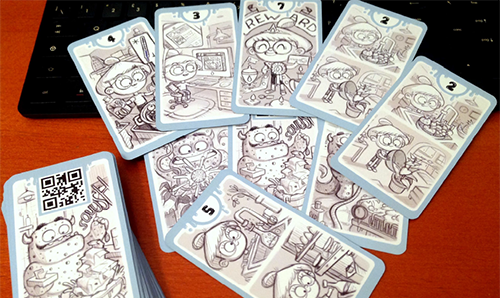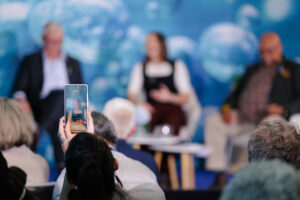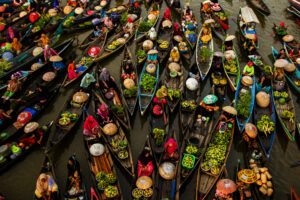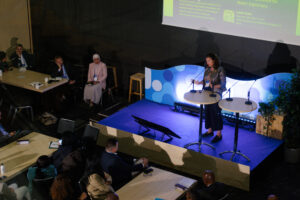Games – A way to change people’s minds?
It is clear that humans are the most significant force affecting the earth. One obvious fact is global climate change, caused by humans. Alteration of precipitation patterns due to global warming and rapid urbanisation increase the pressure on freshwater sources in parts of the world. Can we handle this pressure relying solely on engineering and technology or do we need to do something more?
I had the privilege to present my research on transport and fate of pathogens in catchments at the 36th IAHR World Congress. The congress gathers international hydrologists, engineers and other researchers for five days to listen to presentations and discuss research from around the globe. The conference was filled with talks on how hydrology and engineering knowledge can be used to adapt society to a changing climate. Freshwater supply and flood risks in deltas were some of the main topics.
Although many presentations focused on engineering, I also heard many inspirational talks with ideas on how individual freshwater consumption patterns can be influenced. I was introduced to the concept of “serious gaming”. In a drinking water context, serious gaming can be used for involving and informing the public on their water consumption. It is also common to enable the public to participate in educational games or changing their behaviour in order to reduce their water consumption, receiving perks or small gifts in return. Being able to listen to ideas and concepts from other research areas than my own, and to learn about methods such as serious gaming, widened my perspective and broadened my mind-set regarding drinking water research.
It was a fascinating experience realizing that now, science is trying to understand how the human behaviour can be influenced and how this can reduce the human impact on earth. I do believe that involving, informing and activating the public is necessary to reduce human impact on earth. We can continue to use engineering to safeguard us from climate change and protect us from natural forces, but if we want to create a sustainable human-nature relation that lasts for more than a few generations, public education, awareness and involvement are crucial.
Photo: Card game communicating information on drinking water issues to consumers (Galli, L. et. al., 2015)








